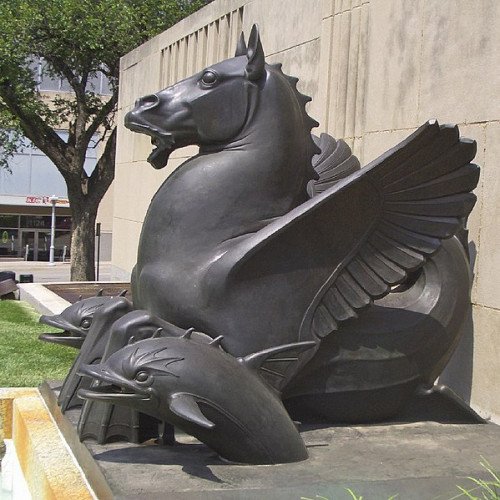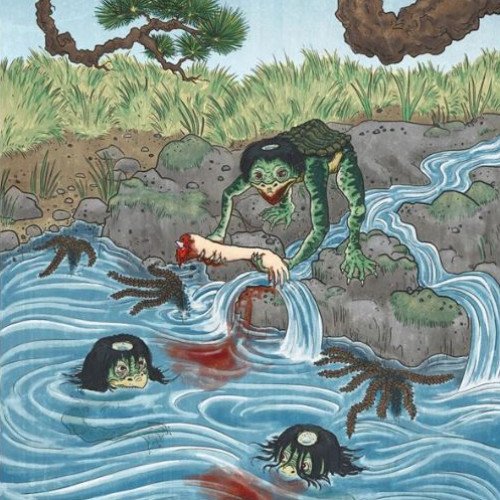Hippocampus (mythology) VS Kappa (folklore)

Hippocampus (mythology)
The hippocampus or hippocamp, also hippokampos (plural: hippocampi or hippocamps; Greek: ἱππόκαμπος, from ἵππος, "horse" and κάμπος, "sea monster"), often called a sea-horse in English, is a mythological creature shared by Phoenician, Etruscan, Pictish, Roman and Greek mythology, though its name has a Greek origin. The hippocampus has typically been depicted as having the upper body of a horse with the lower body of a fish.
Statistics for this Xoptio

Kappa (folklore)
A kappa (河童, river-child)—also known as kawatarō (川太郎, "river-boy"), komahiki (駒引, horse-puller), kawatora (川虎, river-tiger) or suiko (水虎, water-tiger)–is an amphibious yōkai demon or imp found in traditional Japanese folklore. They are typically depicted as green, human-like beings with webbed hands and feet and a turtle-like carapace on their backs. A depression on its head, called its "dish" (sara), retains water, and if this is damaged or its liquid is lost (either through spilling or drying up), the kappa is severely weakened. The kappa are known to favor cucumbers and love to engage in sumo wrestling. They are often accused of assaulting humans in water and removing a mythical organ called the shirikodama from their victim's anus.